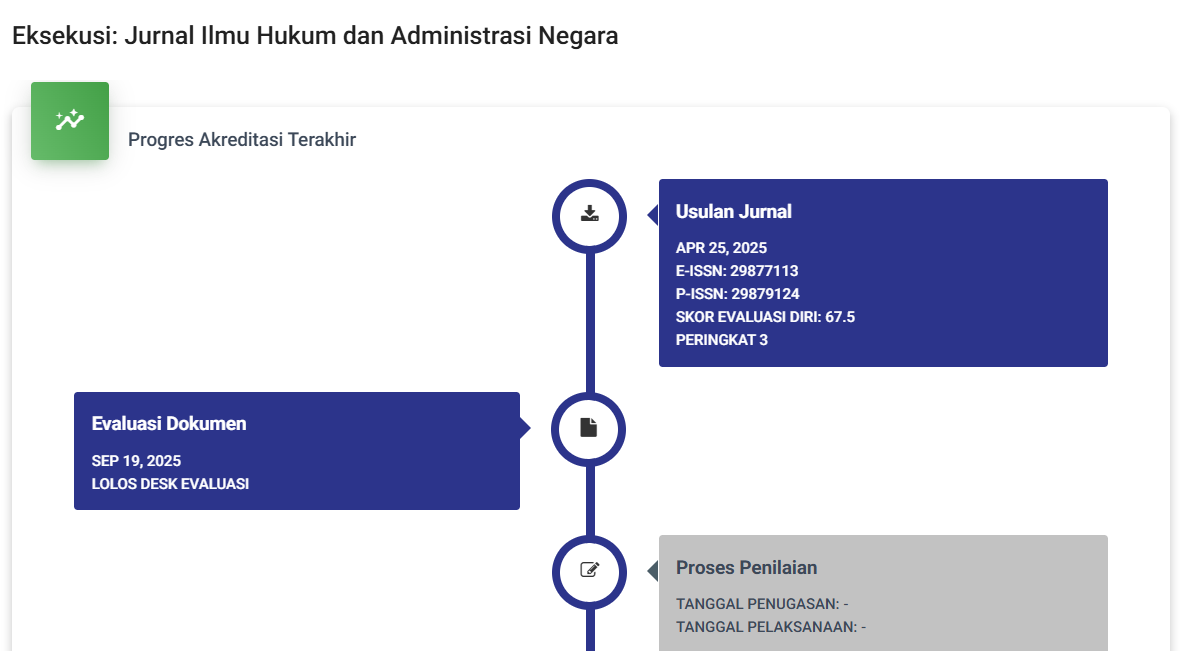Eksistensi Living Law sebagai Perwujudan Masyarakat Adat dalam Pembaruan Sistem Hukum Pidana Nasional
DOI:
https://doi.org/10.55606/eksekusi.v2i2.1080Keywords:
Living Law, Indigenous Peoples, National Criminal Law SystemAbstract
The purpose of this research is to analyze the existence of living law as a manifestation of indigenous peoples in the renewal of the national criminal law system. This research was conducted using descriptive analytical normative legal research, using secondary data obtained from literature studies as the main data and using primary data, namely related legislation as supporting data, research data collection techniques using library research, and data analysis using qualitative juridical data analysis. Based on the research results, it shows that the inclusion of living law elements in the RKUHP is a new hope in the Indonesian criminal law system which is expected to create conscious legal compliance in the community. The application of living law in the Indonesian national criminal law system can also be categorized as a progressive step in the renewal of the national criminal law system. By adopting living law in the RKUHP, the true development of national criminal law does not only mean to improve the positive legal system, but also to serve the needs of society and legal modernization. There is a difference in the understanding of the principle of legality between the KUHP and the RKUHP. The element of living law adopted in the RKUHP is a recognition of the law that lives in the community. In its application, based on the explanation in the RKUHP, living law can be an exception to the applicability of the principle of legality in criminal justice practice in Indonesia as long as it does not conflict with the principles of Pancasila, human rights, and general legal principles that apply in the community.
References
Ahmad Rifan dan Ilham Yuli Isdiyanto, “Dediametralisasi Living Law dan Kepastian Hukum dalam Pasal 2 RKUHP”, Ahmad Dahlan Legal Perspective, Vol. 1, No. 1, 2021.
Amir Ilyas, Asas-Asas Hukum Pidana, Memahami Tindah Pidana dan Pertanggungjawaban Pidana Sebagai Syarat Pemidanaan, Yogyakarta: Mahakarya Rangkang Official, 2012.
Al. Wisnubroto, Dasar-Dasar Hukum Progresif, Yogyakarta: Penerbit UAJY, 1997.
David Nelken, “Eugen Ehrlich, Living Law, and Plural Legalities”, Legal Pluralism, Privatization of Law and Multiculturalism, Vol. 9, No. 2, 2008.
D. Hazewinkel-Suringa, Inleiding tot de studie van het Nederlandse Strafrecht, 1983, hlm. 380, sebagaimana dikutip Loebby Loqman, Makalah: Perkembangan Asas Legalitas Dalam Hukum Pidana Indonesia, disampaikan pada Seminar Tentang Asas-asas Hukum Pidana Nasional yang diselenggarakan oleh BPHN dan Depkumham bekerja sama dengan Fakultas Hukum Universitas Diponegoro, Puri Suite Hotel Ciputra, Semarang, 26 – 27 April 2004.
Fitri Wahyuni, Dasar-Dasar Hukum Pidana Indonesia, Kota Tangerang Selatan: PT Nusantara Persada Utama, 2017.
Kamarusdiana, Filsafat Hukum, Jakarta: UIN Jakarta Press, 2018.
Hartono, Politik Hukum, Menuju Satu Sistem Hukum Nasional, Bandung: PT Alumni, 1991.
Hendra Wahanu Prabandani, Pembangunan Hukum Berbasis Kearifan Lokal, JDIH EDISI 01/TAHUN XVII/2011, Jakarta: BAPPENAS, 2011
Isdiyanto, “Problematika Teori Hukum, Konstruksi Hukum, dan KesadaranSosial. Jurnal Hukum Novelty, Vol. 9, No. 1, 2018.
JJ. H. Bruggink dan Arief Sidharta (Penerjemah), Refleksi Tentang Hukum : Pengertian-Pengertian Dasar dalam Teori Hukum, Bandung: Citra Aditya Bhakti, 2015.
Mahrus Ali, Dasar-Dasar Hukum Pidana, Jakarta: Sinar Grafika, 2012.
Marc Hertogh, “A ‘European’ Concepting of Lwgal Consciousness: Rediscovering Eugen Ehrlich, Journal of Law and Society, Vol. 31, No. 4, 2004.
Nella Sumika Putri, “Memikirkan Kembali Unsur “Hukum yang Hidup dalam Masyarakat” dalam Pasal 2 RKUHP Ditinjau Perspektif Asas Legalitas”, Indonesia Criminal Law Review, Vol. 1, No. 1, 2021.
Prianter Jaya Hairi, “Kontradiksi Pengaturan “Hukum yang Hidup di Masyarakat Sebagai Bagian dari Asas Legalitas Hukum Pidana Indonesia”, Jurnal DPR RI, Vol. 9, No. 2, 2018.
Sahib Singh, “Eugen Erlich’s ‘Living Law’ and its Legacy for Legal Pluralism”, https://papers.ssrn.com/sol3/papers.cfm?abstract_id=1660606, 2010.
Zulkarnain Ridlwan, “Negara Hukum Indonesia Kebalikan Nachtwachterstaat”, Fiat Justitia Jurnal Ilmu Hukum, Vol. 5, No. 2, 2012.








